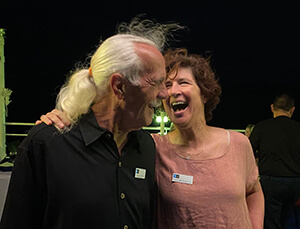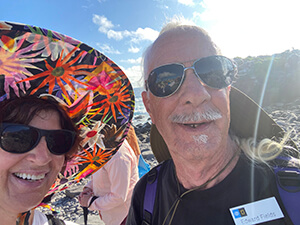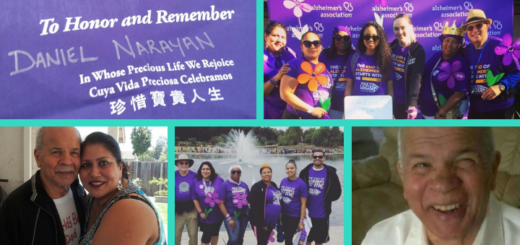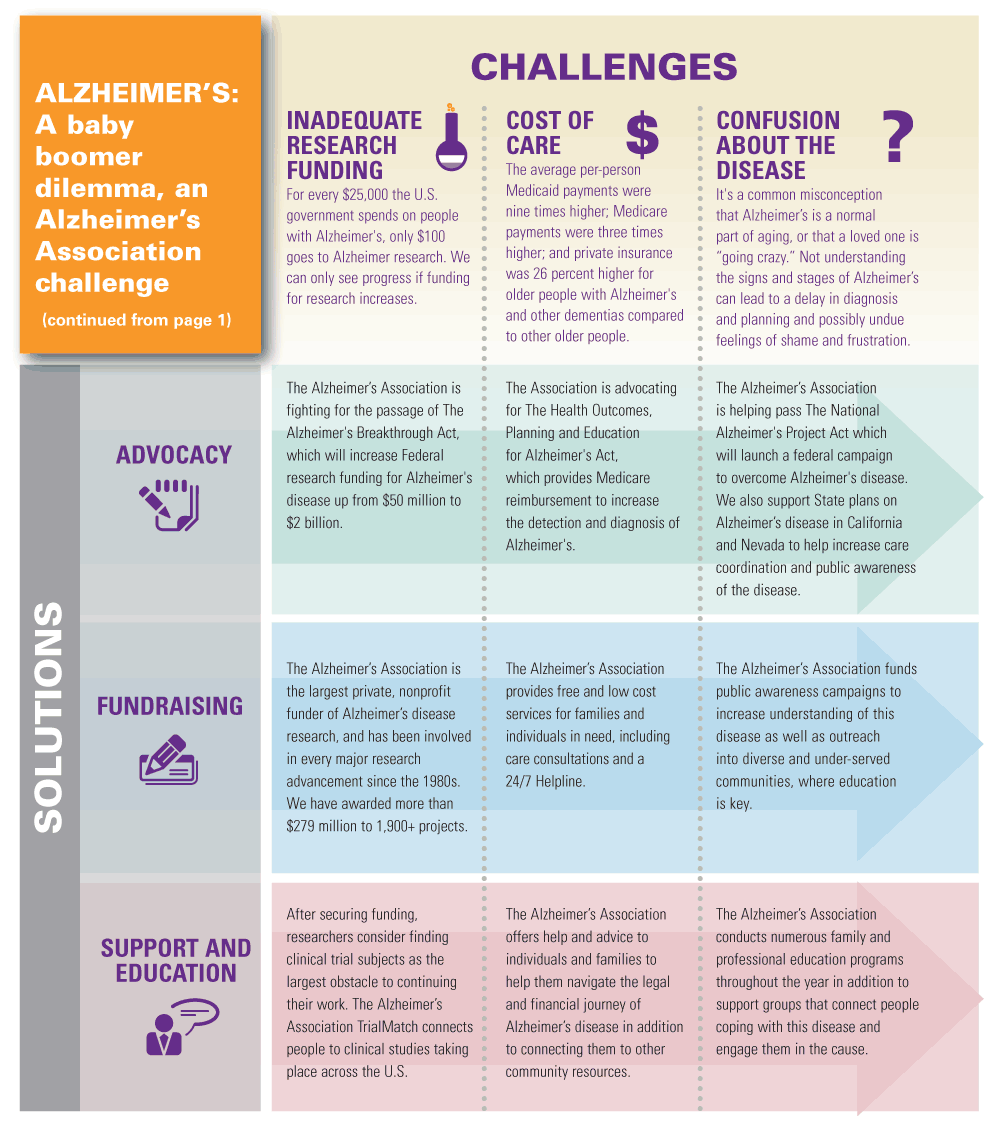Volunteers serendipitously meet 3,000 miles from home and build new friendship
Ruth and Ed, support group facilitators for the Alzheimer’s Association, unknowingly booked the same tour to the Galapagos Islands. Despite being volunteers at the same organization, they had never met until they ran into each other on a plane in Miami. Now the two volunteers continue to be friends, spend time together and share their love of volunteerism.
Serendipity
Sitting on a plane, 3,000 miles away from her California Bay Area home, Ruth was getting ready for takeoff. She had booked a trip to the Galapagos Islands and was just starting the second leg of her trip that would take her from Miami, Florida to Ecuador and then on the Galapagos.
As Ruth was getting set up, she overheard a gentleman behind her mention, “The Alzheimer’s Association,” in a passing conversation. Ruth is a volunteer support group facilitator at the Association and has been dedicating her time with them for more than a decade. She was curious to know who was talking about the Association, and maybe even how she could help.
Ruth turned to talk to the man and found out that he was also a support group facilitator for the Association. Ed, who had been volunteering for the last year and a half, also lived in the Bay Area, a mere 35 miles away from where Ruth lived. Not only that, but he was also going to the Galapagos Islands on the same tour as Ruth, which is why he was on this plane in Miami.
Building connections
Ruth and Ed spent the rest of their trip together, bonding over this shared connection. A connection similar to the ones they help facilitate at the support groups they run. “When any of us face chronic conditions [like Alzheimer’s disease], we feel alone and isolated,” said Ruth. “My favorite thing is when my group members are like. ‘Oh, we had dinner before group.’ I couldn’t be more happy, it’s a win. For folks to step out of isolation and into community, this is the magic.”
Currently the Northern California and Northern Nevada Chapter is home to 100 support groups, both in person and online. This includes support groups for caregivers, family members, friends, specialty groups (e.g. husbands, wives, young-onset, LGBTQ+, etc.) and people living with the disease. All support groups are facilitated by trained individuals, like Ruth and Ed.
Become a volunteer
While Ed’s mother-in-law had Alzheimer’s disease over a decade ago, it wasn’t until his wife died from cancer that it was suggested he become a support group facilitator for the Alzheimer’s Association. Ruth, however, did not have a direct connection to the disease. Instead, she went to school for gerontological issues and found that working with the aging population was her calling. Ruth spends as much time as she can with people over 50 and refers to them as “her people.”
Ruth and Ed enjoy their time as support group facilitators. They both feel that it gives them purpose and encourage others to consider joining them as volunteers. For Ed, volunteering makes him think of a Tim McGraw song:
When you get where you’re goin’
Don’t forget turn back around
Help the next one in line
“I’m amazed at the humanity because I believe in every quarter there is good and bad,” said Ed. “I believe the good outweighs the bad and we’ve got to be kind and gentle. May kindness be your companion in this path of life, the simple things in life.”
For Ruth, volunteering is all about community. “Volunteering has given me so much in terms of being active in my community and love my community in every which way,” said Ruth. “I get more from it then I ever feel like I give. It’s a huge honor and that’s how I go to the moon. I just couldn’t have imagined doing something more meaningful and important.
“The Alzheimer’s Association has so much support and resources available. It’s not like you have to know everything day one. You’ll get lots of help along the way. The community is so supportive and knowledgeable and encompassing in a non-rigid way. I like being part of this family, like Ed, my Alzheimer’s brother.”
Staying friends
After an amazing trip Ruth and Ed bonded once more over 48 hours worth of flight delays in Ecuador on their return trip home, sealing their friendship. Since then, the two have remained great friends joking about how much they have in common, like drum circles and backyard chickens. They continue to visit each other weekly.
“If we’re lucky that means we get to get older,” said Ruth “It means [Alzheimer’s is something] we’re going to encounter personally, and knowledge is power. We can’t cure [Alzheimer’s] but we can at least be kind along the way.”
If you’re interested in becoming a volunteer with the Alzheimer’s Association, please visit alz.org/norcal/volunteer.
For more information on support groups please visit our website or call the 24/7 helpline at 800.272.3900.



















